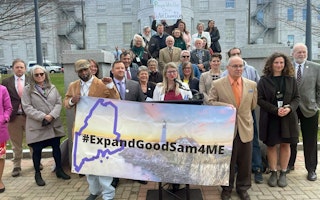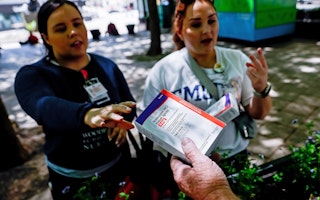Psychoactive Drugs: A Matter of Public Health
By Jorge da Silva
What is the purpose of prohibitionism as drug policy? Why are drugs such as alcohol and tobacco, which are as or even more harmful than cannabis and cocaine, legal? These are some of the issues that have guided the discussions of the Brazilian Committee on Drugs and Democracy (CBDD in Portuguese).
Similarly to the 1920s alcohol prohibition in the United States, we see today that the penal prohibition of cannabis (the most commonly used drug in the world) has only been harmful. If the goal of the so-called "war on drugs" is to protect our youth, it has been proven a fallacy; our youth have been precisely its greatest victims.
It should not be overlooked that curiously both prohibitionists and anti-prohibitionists are concerned with how the use and abuse of psychoactive substances inflict harm on individuals and society in general. The difference lies in their methods. Prohibitionist policies continue to regard drug use as a crime with the well-known ensuing disastrous results, in other words: families torn apart, not by drug use per se, but by having it made clandestine, enveloped in secrecy. Not to speak of the hundreds of deaths caused by militarized “combat” against the drug trade.
The fact is that the use of drugs by young people is a matter of public health, far too important to be left in the hands of the penal system and law enforcement. In fact, tobacco and alcohol are examples of this. Educational campaigns on TV and restrictions to smoking areas have managed to reduce tobacco use especially among young people. The same is true of alcohol. There are considerable restrictions in place. It is forbidden to sell alcohol to youth under 18 years of age. The so-called "Dry Law," or Lei Seca in Portuguese, outlaws drinking and driving and while it is somewhat draconian, it has reduced alcohol consumption among drivers.
The CBDD (a grantee of the Open Society Foundations) opposes a criminal approach to the drug issue. Casual drug users must be distinguished from problematic users. The latter should be referred to treatment—if they wish or agree—not to a police station or to forced commitment, a euphemism for jail. The fact that drug use in Brazil is still a crime is a complicating factor in developing programs of this nature. It creates stigma and it is the reason why the Committee supports the decriminalization of drug use, especially cannabis.
A curious fact: after the fiasco of the alcohol prohibition in the United States (which caused an explosion of illegal trade, a proliferation of gangsters, police and government corruption, the growth of organized crime structures at national level, and violence on the streets) Americans decided to legalize the consumption, production, sale, circulation, and import and export of alcohol, under government control, feeding billions of dollars into to the national treasury.
Even today, the United States has much stricter alcohol control than, for example, Brazil. Strangely enough, what we find today is that peripheral countries, nations seen as drug producers or providing drug routes to Europe and the United States (the largest consumers in the world), follow prohibitionist policies that Americans abandoned. Thus the CBDD supports the proposal to regulate the production, distribution and sale of cannabis, along the same lines of the alcohol control model applied in the United States.
The Committee hasn't been conclusive on the regulation of other drugs considered more hazardous to health. However, it concluded that the current policy that criminalizes users must be rethought. The use of psychoactive drugs is a matter that must be addressed in the realms of health and education; it should never be a matter for the penal system.
That is why the National Campaign for a Change in Drug Policies, promoted by Viva Rio in partnership with the CBDD, has been very timely. The Campaign will be launched nationwide by the end of July with the support of Avaaz, among other important organizations. The goal of the campaign is to promote that change in drug laws we so urgently need to make them more equitable and effective. Brazil is ready for this step, and Brazil and the world need this change.
Jorge da Silva is a retired military police colonel for the state of Rio de Janeiro.


